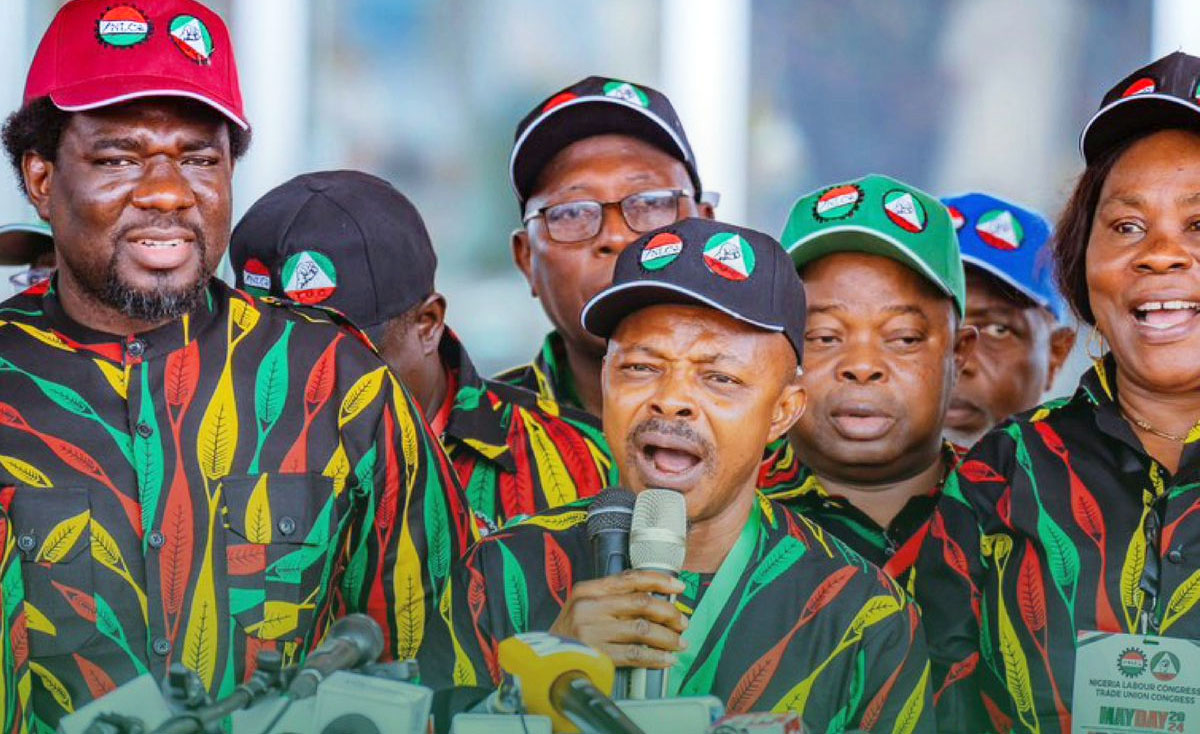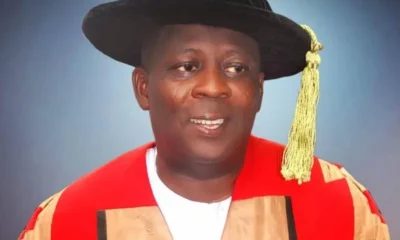News
Naira scarcity: CBN begins allocation of more cash to banks

The Central Bank of Nigeria (CBN) yesterday began cash allocation to banks to ease the scarcity.
A director confirmed the development to The Nation.
The source said the CBN felt the pains of Nigerians as the cash crunch bit harder.
“We also have family members who were affected by the lack of cash.”
Labour, which last week gave a seven-day ultimatum to the government to end the naira crisis, directed workers to stay off work and picket CBN offices in state capitals from Wednesday.
READ ALSO:
- Ronaldo breaks another record, grabs brace in Euro qualifier
- Obaship: Will Tinubu violate Yoruba culture for MC Oluomo?
- Nigeria Air will commence operation before May 29 – FG
The Supreme Court on March 3 ordered that the old and new N1000 and N500 notes should remain legal tender till December 31.
The CBN hesitated before beginning limited compliance with the order as cash scarcity persisted.
The governors that took the Federal Government to court threatened to initiate contempt proceedings against Attorney-General of the Federation Abubakar Malami and CBN Governor Godwin Emefiele.
The NLC lamented that its member could no longer pay transportation fares to work or for basic needs.
The CBN may have moved to forestall the likely economic consequences of a major strike.
Some bank staff confirmed to our correspondent that they got enough cash from the CBN to meet customers’ demands.
It was learnt that the old denominations were released late afternoon and early evening.
Bank sources said with the quantity of cash they had yesterday, customers can now withdraw as much as N100,000 for individuals and N500,000 for corporate bodies over the counter from today.
Disbursements from Automated Teller Machines (ATMs), however, remain uncertain.
It was unclear whether banks outside Abuja also now have enough cash.
Also yesterday, the House of Representatives asked the CBN to direct banks to immediately overhaul their online/electronic banking platforms for efficiency.
Adopting a motion at plenary, the House expressed concern about the difficulties in carrying our banking operations.
READ ALSO:
- Labour Party dismisses Keyamo petition, says accusations baseless
- Keyamo seeks arrest of Peter Obi over alleged incitement
- PDP suspends Fayose, Ayim over alleged anti-party activities
A lawmaker, Sergius Ose Ogun, said many Nigerians have lost money to the inefficiency of the online/internet banking platforms.
He said Section 2 of the CBN Act saddles it with the duty of promoting a sound financial system in Nigeria.
Ogun said: “In the wake of the recent naira redesign and cash withdrawal limit policy of the CBN, there has been an increase in the use of online and electronic banking services to carry out monetary transactions across the country.
“The use of online or internet banking services by Nigerians in the past three months or thereabouts has been characterised by varying degrees of hitches ranging from unsuccessful electronic bank transfers, Point of Sale (POS) service failure and a host of others.
“The ineffectiveness or difficulty in using internet banking services across the online banking platforms of most banks has brought untold hardship, suffering and difficulties on Nigerians in the past three months.
“If nothing is done by the CBN and the banks to address these difficulties or ineffectiveness, Nigerians will continue to suffer untold hardships and loss of monies to unsuccessful electronic bank transactions.”
Africa
Nigeria withdraws fighter jets as Benin recovers after failed coup attempt

Nigeria withdraws fighter jets as Benin recovers after failed coup attempt
Nigeria has withdrawn the fighter aircraft it deployed in the Benin Republic following Sunday’s attempted coup, after security assessments confirmed that the situation in the neighbouring country has stabilised. Security sources said the aircraft—initially dispatched from Lagos for surveillance and regional monitoring—were recalled on Sunday afternoon when updated intelligence indicated that the crisis no longer posed “immediate threat to Nigeria’s territorial security.”
The failed coup, aimed at toppling the democratic government of President Patrice Talon, began with an early morning assault on the presidential residence in Cotonou.
Mutinous soldiers, dressed in full military uniform, attempted to seize power but were repelled by loyal forces. Unable to capture the President, the rebels proceeded to take over the Office de Radiodiffusion et Télévision du Bénin (ORTB), briefly controlling the national broadcast signal.
The crisis escalated rapidly, but the Beninese National Guard responded decisively, surrounding the television station and blocking the mutineers’ escape routes.
By late Sunday, loyalist security units had secured all major government installations, restoring order across the capital city.
READ ALSO:
- Dozen Soldiers Held as Benin Govt Thwarts Coup Against President Patrice Talon
- Benin govt says coup attempt foiled as soldiers seize state TV, gunfire rocks Cotonou
- BREAKING: Soldiers Announce Coup in Benin Republic, Declare President Patrice Talon Removed
“The situation is under control. The National Guard has everything surrounded,” a senior security official said, noting that negotiations were initiated to persuade the barricaded mutineers to surrender peacefully.
President Talon, reported safe in an undisclosed location, has yet to address the nation. Meanwhile, the streets of Cotonou remained tense but calm, with no reports of widespread violence or civilian casualties.
Presidential spokesman Bayo Onanuga confirmed in a statement on X that the coup had collapsed.
“Mutineers in military uniform who attempted to overthrow President Patrice Talon’s democratic government have failed. They seized the National TV after failing to enter the presidential residence,” he wrote.
He added that Colonel Pascal Tigri, the alleged leader of the mutiny, was on the run, while several members of the group had been apprehended.
Benin’s Interior Minister Alassane Seidou also appeared on national television, confirming that the military uprising had been foiled. “Early on Sunday, 7 December 2025, a small group of soldiers launched a mutiny aimed at destabilising the state and its institutions. The armed forces remained loyal to the republic, and their response allowed them to foil the attempt,” he said.
The Beninese government has since urged citizens to resume their normal activities, assuring the public that the security situation remains firmly under control.
Nigeria withdraws fighter jets as Benin recovers after failed coup attempt
News
Akpabio sues Natasha for ₦200bn over sexual harassment allegations

Akpabio sues Natasha for ₦200bn over sexual harassment allegations
Senate President Godswill Obot Akpabio has instituted a ₦200 billion defamation lawsuit against Senator Natasha Akpoti-Uduaghan, accusing her of spreading malicious sexual harassment allegations that he says have severely damaged his public image.
According to documents filed before the High Court of the Federal Capital Territory, Abuja, Akpabio is seeking substantial damages, public retractions, and nationwide broadcast apologies. He argues that Senator Akpoti-Uduaghan’s televised, radio, and online interviews portrayed him as a sexual predator who abused his office for personal gratification—claims he insists subjected him to widespread ridicule and reputational harm.
The lawsuit includes a comprehensive statement of claims and a list of witnesses. Akpabio is also asking the court to compel the removal of all online materials containing the disputed allegations and to order repeated public apologies across major media outlets.
READ ALSO:
- Nigeria joins global ICH elite as NAFDAC achieves full international regulatory Status
- Supreme Court Strikes Out Osun Suit on Withheld Local Govt Allocations
- DSS Arrests Doctor Providing Medical Support to Bandits in Kwara State
A court order issued on 6 November 2025 granted permission for substituted service through the Clerk of the National Assembly after initial attempts to reach Senator Akpoti-Uduaghan directly were unsuccessful. The case is now moving forward and is expected to become one of the most closely watched political legal battles in Nigeria.
Responding on 5 December 2025, Senator Natasha Akpoti-Uduaghan confirmed receipt of the suit and expressed readiness to defend her allegations before a competent court. She stated that she had previously been prevented from presenting a petition before the Senate Committee on Ethics and Privileges due to claims that a related case was already in court—an action she believes protected the Senate President from legislative scrutiny.
In a strongly worded response, the Kogi Central senator maintained that the court proceedings will finally provide the platform to substantiate her claims. She reiterated her stance that she experienced sexual harassment and that her refusal to comply with the alleged advances prompted sustained political retaliation.
“See you in court, Godswill Akpabio,” she declared.
Akpabio sues Natasha for ₦200bn over sexual harassment allegations
News
NLC threatens nationwide protests as insecurity worsens, withdraws support for Labour Party

NLC threatens nationwide protests as insecurity worsens, withdraws support for Labour Party
The Nigeria Labour Congress (NLC) has warned that it will no longer remain passive as criminal gangs intensify violent attacks across the country, declaring its readiness to hold a national day of mourning and mobilise nationwide protests over the escalating insecurity in Nigeria.
Speaking at the opening of the NLC’s National Executive Council (NEC) meeting in Lagos, NLC President Joe Ajaero said the country was “under siege,” condemning the latest school kidnapping and the reported withdrawal of security personnel before the attack. He demanded a full investigation to expose any possible compromise within the nation’s security architecture.
“The NLC cannot stand idly by and allow criminals to take over our country—never again. We want to know who ordered the withdrawal of security operatives from that school. We will not allow kidnappers and bandits to overrun our nation,” Ajaero said.
READ ALSO:
- Oshiomhole Seeks Tougher Regulation of Fintech Firms After Cyber Fraud Experience
- Boris Johnson Hails Kemi Badenoch as “Future UK Prime Minister” During Visit to Nigeria
- A troubling message from Guinea-Bissau, by Azu Ishiekwene
He stressed that the labour movement would soon announce details of the planned protests and national mourning, insisting the lives of teachers, students and workers were in grave danger. “It is getting out of hand. We can no longer bear this,” he added.
Ajaero also revealed that the NLC had withdrawn its representatives from the Labour Party, accusing them of pursuing personal interests rather than representing workers.
Human rights lawyer Femi Falana, SAN, who addressed the meeting, warned that the country was in “serious trouble” over rising kidnappings and attacks. He rejected calls for foreign military intervention, cautioning that such a move would undermine Nigeria’s sovereignty.
Falana criticised recent statements by former U.S. President Donald Trump, describing them as unacceptable. He urged President Bola Tinubu to take decisive action to protect citizens, saying: “We want to let the world know that we are not a conquered people.”
He called on labour unions, civil society organisations and Nigerians to prepare to resist any further decline in national security.
NLC threatens nationwide protests as insecurity worsens, withdraws support for Labour Party
-

 Sports2 days ago
Sports2 days ago2026 FIFA World Cup Draw: England Draw Croatia as Brazil Face Morocco in Tournament Opener
-

 News2 days ago
News2 days agoAkpabio sues Natasha for ₦200bn over sexual harassment allegations
-

 metro3 days ago
metro3 days agoTinubu Govt Eliminates More Terrorists Than Previous Administrations — Fani-Kayode
-

 Politics2 days ago
Politics2 days agoOsogbo Youth Group Condemns APC Over Disqualification of Adegoke SAN
-

 metro2 days ago
metro2 days agoNigerian woman sparks outrage for refusing chemotherapy despite ₦30 million donations over religious Beliefs
-

 metro2 days ago
metro2 days agoFour Teenagers Killed in Banki Explosion as Borno Police Probe Deadly IED Blast
-

 Opinion3 days ago
Opinion3 days agoSiyan Oyeweso: Lessons in virtue and vanity
-

 metro1 day ago
metro1 day agoAkpabio denies filing new ₦200bn lawsuit against Natasha











